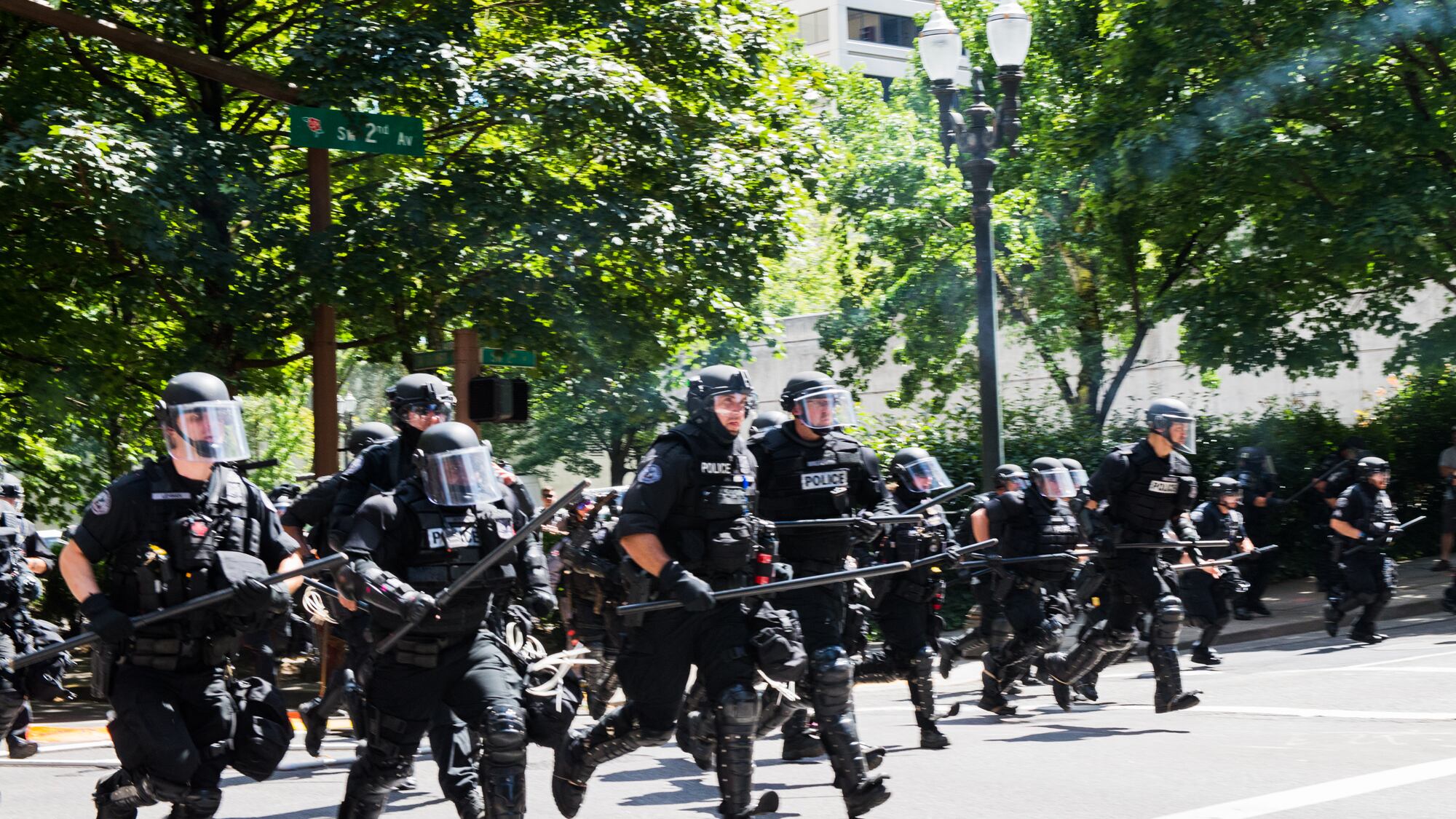The City of Portland is struggling to investigate whether police acted appropriately on Aug. 4 when they fired flash bang explosives to disperse a crowd of protesters on SW Naito Parkway. That struggle is in part because the agency that investigates police misconduct has drawn suspicion from those injured by police.
The Independent Police Review sent a list of 30 questions to Aaron Anthony Cantu, a protester who says a flash bang penetrated his bike helmet, leaving him with a brain hemorrhage that had to be drained through a tube at the hospital.
But Cantu and his attorneys will not answer the questions, which they say read like an insurance adjuster's questionnaire.
"The questions they asked speak for themselves, and they are focused on the city's liability—not independent police review," says Juan Chavez, one of the lawyers representing Cantu.
The questions include inquiries about the number of explosions Cantu heard before being hit, where police were when the flash bang explosives were fired, and who Cantu had been protesting with at the time. Several questions dwell on Cantu's injuries and medical treatment. IPR asks in three different questions how the aerial distraction device punctured the helmet's shell:
Fellow protesters posted photos of the damaged helmet and Cantu's wounds in the days after the Aug. 4 protest. The Oregonian interviewed Cantu several days later and published more photos of his injuries and the helmet.
But IPR and the Portland Police Bureau did not identify Cantu until he filed a tort claim against the city in September.
The director of IPR says the investigation into possible police misconduct has been hampered by a lack of cooperation from Cantu and his attorneys.
"The lack of cooperation heretofore by the complainant's legal counsel after months of efforts by staff to secure an interview and the release of material related to this investigation prior to the end of IPR's administrative investigation undermines accountability," says IPR director Constantin Severe.
Severe says without cooperation from Cantu, he expects the IPR investigation to close soon.
Cantu's lawyers say IPR's efforts to investigate the incident have fallen short.
"We are ourselves hopeful to find accountability," Chavez says. "If this is how IPR goes about its investigations, it's not surprising we haven't had the police reforms needed to prevent the injury my client suffered on August 4th. Frankly, this is starting to sound like victim shaming."

